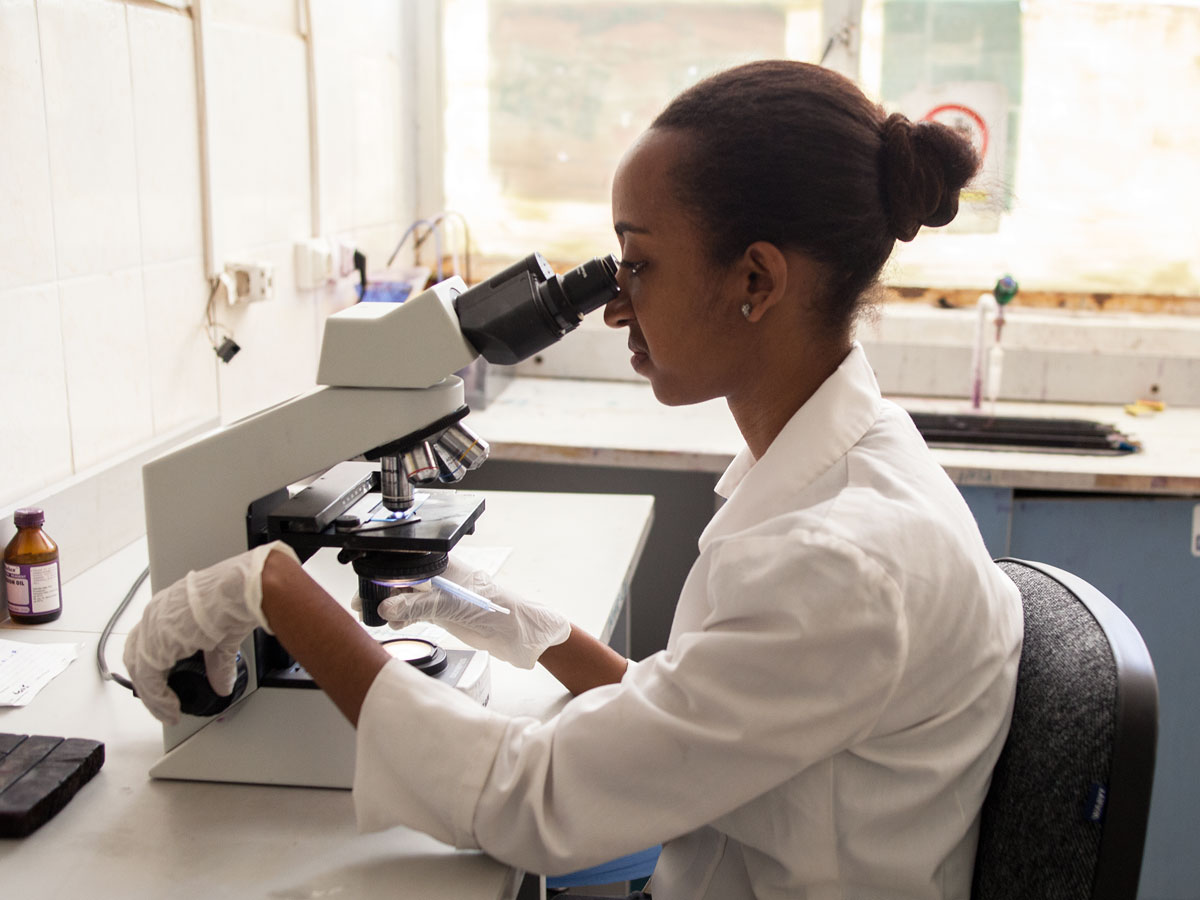Malaria is one of the most fearsome threats to health in Ethiopia, where more than two-thirds of the population lives in high-risk areas and more than 1.5 million cases are reported annually.
But over the last decade, Ethiopia has made tremendous progress in its hard-fought struggle to combat this deadly disease, thanks in no small part to the nine-year-long Malaria Laboratory Diagnosis (MDLM) project funded by the U.S. Agency for International Development (USAID) under the U.S. President’s Malaria Initiative (PMI).
“Through the MLDM project, tremendous achievements have been made to scale up the quality of malaria diagnosis and treatment in Ethiopia,” noted acting USAID mission director in Ethiopia Dianna Darsney de Salcedo in her keynote address at a recent event to mark the successes of the project. “Confirmatory testing of malaria has improved from 59% in 2011 to 97% in 2016, reducing the number of deaths due to malaria from 2,173 in 2012 to 374 in 2017.”
ICAP has played a significant role in this lifesaving work. Since 2008, ICAP has been working with Ethiopia’s Federal Ministry of Health (FMOH) under PMI to improve the ability of Ethiopian health centers to detect, diagnose, and treat malaria. From 2009 to 2017, the project supported 1,026 health facilities to strengthen the capacity of malaria diagnosis and fever case management.
In a colorful event in February in the Ethiopian capital of Addis Ababa, ICAP in Ethiopia hosted the Ethiopian Federal Ministry of Health (FMoH), Ethiopian Public Health Institute (EPHI), regional health bureaus (RHBs), and regional reference laboratories to celebrate the progress made against the disease by this determined group of partners.
In addition to USAID’s Darsney de Salcedo, the event’s honored guests included Ethiopian health minister Kebede Worku, MD, MPH, ICAP chief operating officer and deputy director Mark Fussell, country director of ICAP in Ethiopia Zenebe Melaku, MD, and project principal investigator Bereket Alemayehu, MD, MSc, MS, who, together, highlighted the project’s accomplishments and recognized the important local and international partnerships that made the work possible.
“Strengthening and expanding access to quality-assured laboratory diagnosis and treatment services is a critical intervention to reduce malaria-related mortality and morbidity as well as accelerate the progress toward elimination of malaria in Ethiopia,” Melaku said.
Malaria is a global health concern, and remains a critical public health challenge in tropical and sub-tropical countries such as Ethiopia, where people remain susceptible to bites from female Anopheles mosquitoes carrying the Plasmodium parasite that causes the disease. According to the World Health Organization (WHO), there were an estimated 216 million cases of malaria in 91 countries in 2016 (up from 211 million the previous year) and approximately 445,000 deaths, 91 percent of which occurred in sub-Saharan Africa.
A key part of Ethiopia’s national strategy to prevent and control malaria is prompt and effective malaria diagnosis and case management. Although rapid tests have helped to identify potential malaria cases for referral and treatment, especially in rural or underserved areas where health infrastructure is lacking, laboratory microscopy is still the gold standard for malaria diagnosis. Strengthening laboratory capacity and quality assurance practices is essential to ensure accurate diagnosis and appropriate case management.
According to MLDM project director Mekonnen Tadesse, MSc, the project was designed to address four major intervention areas in order to strengthen the overall capacity of malaria laboratory diagnostic and treatment services in the country: improving quality of malaria laboratory diagnosis; improving malaria and fever case management; strengthening linkage between malaria, HIV, and TB diagnostic and treatment services; and conducting operational research.
“Malaria diagnosis is the most difficult laboratory examination, requiring a high level of competency,” Tadesse stated. “In view of this fact, intensive training-of-trainers and basic trainings were provided to improve the proficiency of laboratory personnel in the areas of parasite detection, malaria quantification, and species identification.”
As part of the MLDM project, ICAP and its partners also developed and distributed a number of key resources, including the National Malaria External Quality Assurance Guidelines, the Malaria Diagnosis Manuals, Standard Operating Procedures, job aids, bench aids, comprehensive laboratory registers and other provider tools , which aim to standardize the process of laboratory diagnosis across all the health facilities. Additionally, Ethiopia’s first national malaria slide bank was established under the MLDM project in 2012 at the Ethiopian Public Health Institute.
“ICAP is very proud to be part of the journey in the success story achieved by the national malaria program in Ethiopia,” said ICAP’s Fussell. “The MLDM project has made significant contributions to improving the quality of malaria laboratory diagnosis and case management services in Ethiopia.”
Read more about ICAP’s work in Ethiopia.








